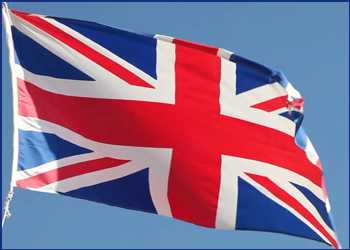The UK economy contracted for the first time in six quarters in the three months ended September, which is likely to be the beginning of a prolonged recession as projected by the Bank of England.
Gross domestic product shrank 0.2 percent sequentially, offsetting the 0.2 percent gain in the second quarter, the first estimate from the Office for National Statistics showed Friday. However, the pace of decline was slower than the widely expected -0.5 percent.
The level of quarterly GDP was 0.4 percent below its pre-coronavirus level.
Chancellor Jeremy Hunt warned of tough road ahead after the ONS data showed a contraction in the third quarter.
The situation requires extremely difficult decisions to restore confidence and economic stability, he said. Hunt is set to deliver an Autumn Statement on November 17.
Nonetheless, the fundamental resilience of the British economy is cause of optimism in the long run, the chancellor added.
Earlier this month, the BoE had forecast the economy to shrink 0.5 percent in the third quarter and by 0.3 percent in the fourth quarter of this year. The economy is forecast to remain in recession throughout next year and the first half of 2024.
“As the cost of living squeeze continues, we expect a 2% hit to GDP by next summer, though much depends on how the government’s energy support evolves between now and then,” ING economist James Smith said.
The production-side breakdown showed that there was no growth in services output in the third quarter, a slowing from the 0.2 percent increase in the preceding period.
At the same time, production output contracted 1.5 percent, marking the fifth consecutive quarter of fall.
The latest quarterly fall in production output was driven mostly by a 2.3 percent fall in manufacturing output. Meanwhile, construction output gained 0.6 percent, underpinned by increases in new work orders.
On the expenditure-side, household expenditure eased 0.5 percent mainly due to falls in clothing and footwear, household goods and services and household furniture and equipment. On the other hand, government consumption gained 1.3 percent, reflecting rises in central government expenditure.
Gross fixed capital formation grew 2.5 percent, rebounding from a 1.4 percent drop, supported by government investment. Business investment fell by 0.5 percent, bigger than economists’ forecast of -0.3 percent.
Excluding the alignment and balancing adjustments, early estimates show that inventories fell by GBP 11.3 billion. The trade deficit for goods and services improved to a 2.0 percent of nominal gross domestic product in the third quarter, the ONS said.
Data showed that the visible trade deficit narrowed to GBP 23.7 billion in the third quarter from GBP 25 billion in the second quarter.
In September, GDP dropped 0.6 percent, which was affected by the bank holiday for the State Funeral of Her Majesty Queen Elizabeth II, where some businesses closed or operated differently on this day.
In September, industrial output gained 0.2 percent driven by the 1.5 percent rise in electricity and gas output and the 0.7 percent increase in mining and quarrying output. Water supply and sewerage gained 0.3 percent, while manufacturing remained flat.
Source: Read Full Article
-
In Modi’s Amritkal, Worrying Decline Of Economy
-
Despite headwinds Info Edge stock rally continues on strong Q4 performance
-
Tighter Credit Standards, Weaker Loan Demand Suggest Bleak Investment Outlook In Eurozone
-
'I don't want to go bankrupt': High inflation leaves little room for unexpected costs
-
What Rivalry? James Gunn Says Marvel’s Kevin Feige Was “The 1st Person I Told After I Did The Deal With DC”

